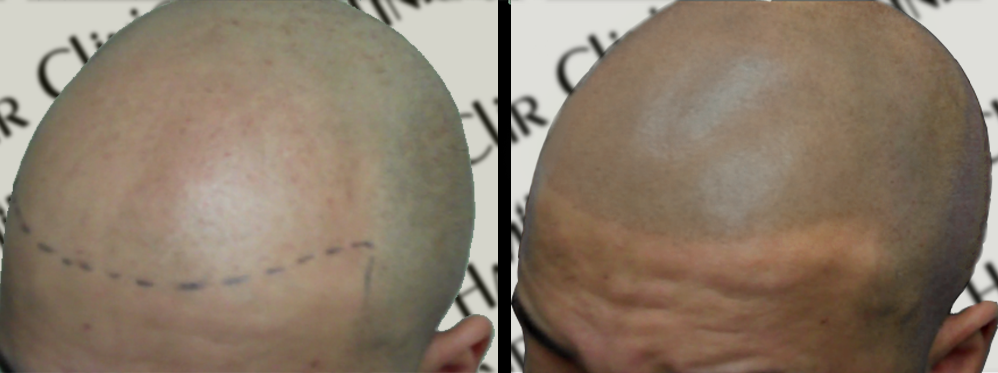Hair loss after bariatric surgery affects approximately 57% of patients who undergo weight loss procedures. This common side effect typically begins around three to four months following surgery and can continue for several months. Many patients experience significant distress when they notice increased hair shedding during this period, which should otherwise be a celebratory time in their weight loss journey.
This type of hair loss is known as telogen effluvium. Your hair follicles shift from the active growth phase into a resting phase due to the physical stress of surgery and rapid weight changes. It’s essential to understand the body’s functioning in this context.
When one part of your body is injured or undergoing healing, it focuses on vital organs like your heart and brain. As a result, nutrients are directed away from cosmetic functions like hair growth.
Will Hair Loss After Bariatric Surgery Ever Stop?
This question weighs heavily on the minds of most patients experiencing hair loss after bariatric surgery. Well, most people notice their hair loss stabilizing around six months post-surgery, with new growth becoming visible by nine to twelve months.
However, the regrowth process can be slow and uneven. Some patients develop patchy areas that take longer to fill in completely. Others find their hair texture or thickness permanently changed after regrowth. The emotional impact during this waiting period can be huge, especially when confidence was beginning to return after successful weight loss.
When Does Hair Loss Stop After Weight Loss Surgery?
Hair loss after bariatric surgery usually peaks between three and six months following the procedure. The shedding phase typically lasts until all hair that entered the resting phase falls out. After this period, new hair growth should gradually resume.
Unfortunately, some patients experience prolonged shedding beyond the typical timeframe. This extended hair loss often indicates nutritional deficiencies, particularly low levels of iron, zinc, protein, or B vitamins. Even with proper supplementation, the recovery timeline varies significantly between individuals.
What Causes Hair Loss After Rapid Weight Loss?
Several factors contribute to hair loss after bariatric surgery beyond just the surgical stress. Rapid weight reduction itself triggers telogen effluvium as your body perceives this dramatic change as a stressor.
Additionally, the reduced caloric intake and potential malabsorption issues can create nutritional deficiencies that further compromise hair health.
Gastric bypass and sleeve gastrectomy procedures are more likely to cause hair loss compared to less invasive options like gastric banding. This difference occurs because these surgeries create more dramatic weight loss and higher risks of nutrient deficiencies due to altered digestion and absorption.
Is Hair Loss After Bariatric Surgery Permanent?
For some, it is temporary. But for others, the recovery never happens. Factors, like age, genetics, pre-existing hair thinning, and adherence to nutritional guidelines, influence the likelihood of complete recovery.
Women are more susceptible to prolonged hair loss, particularly those who were younger at the time of surgery. Patients with low zinc, iron, or protein levels face higher risks of incomplete hair restoration even with proper supplementation.
Limitations of Natural Hair Recovery
While following proper nutrition protocols helps many patients, natural hair regrowth after bariatric surgery has limitations. Even when hair does return, it may be thinner, weaker, or grow more slowly than before surgery.
Traditional treatments like minoxidil or nutritional supplements work slowly and inconsistently. Many patients find these approaches insufficient for restoring their confidence during this critical recovery period.
Is Scalp Micropigmentation the Immediate Solution?
Scalp micropigmentation offers immediate visual improvement for patients experiencing hair loss after bariatric surgery. Unlike treatments that require months or years to show results, SMP creates the appearance of fuller hair instantly. This advanced procedure deposits specialized pigments into the scalp to replicate natural hair follicles, effectively camouflaging thinning areas and bald spots.
For bariatric patients dealing with the emotional challenges of hair loss during their transformation journey, SMP provides psychological relief when it is needed most. The procedure works regardless of whether natural regrowth eventually occurs, making it an excellent option for those seeking immediate results.
However, some tattoo artists now claim to offer SMP services. Unfortunately, they pose a threat as they lack knowledge, skills, or proper training in scalp anatomy, hairline design, or specialized pigment chemistry.
The delicate nature of scalp skin requires specific expertise that traditional tattoo artists typically lack.
Before selecting an SMP provider, thoroughly investigate their specific scalp micropigmentation training and experience. You must choose the right Arizona SMP practitioner who understands how to create age-appropriate, natural-looking hairlines.
With the right specialist in scalp micropigmentation in Arizona, you can achieve immediate visual improvement while your body continues its natural healing process.
DermiMatch Clinic can help you find the best scalp practitioner in Arizona.

